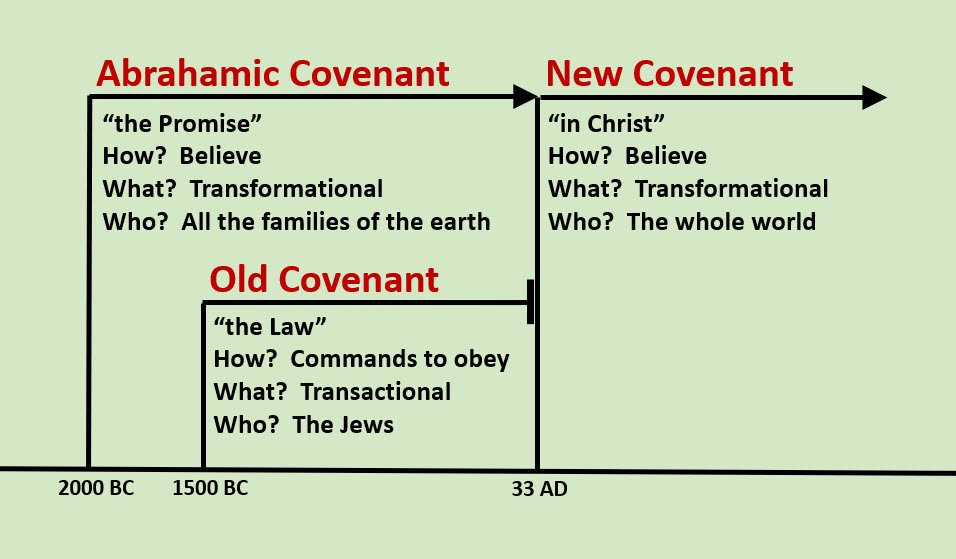“And in the same way He took the cup after they had eaten, saying, ‘This cup which is poured out for you is the new covenant in My blood’ “ (Luke 22:20). Jesus’ death launched the new covenant into action. And we who believe are the beneficiaries of that covenant.
As we have seen in this series, the new covenant is actually a continuation of the covenant promises that God made with our spiritual forefather Abraham. “Does He who supplies the Spirit to you and works miracles among you do so by works of the law, or by hearing with faith; just as Abraham ‘believed God, and it was counted to him as righteousness’? Know then that it is those of faith who are the sons of Abraham” (Galatians 3:5-7).
We are sons of Abraham because we enter the promise of the new covenant just as Abraham entered into his covenant arrangement with God; BY FAITH!
“For if Abraham was justified by works, he has something to boast about, but not before God. For what does the Scripture say? ‘Abraham believed God, and it was counted to him as righteousness.’ Now to the one who works, his wages are not counted as a gift but as his due. And to the one who does not work but believes in Him who justifies the ungodly, his faith is counted as righteousness” (Romans 4:2-5).
Let’s add the promise and provision of the new covenant to our covenant comparison. (AC = Abrahamic covenant, OC = old covenant, NC = new covenant)
1. AC: It was a covenant based on God’s promise, not Abraham’s action.
OC: It was a covenant based on man’s obedience.
NC: It is a covenant based on God’s promise, not our obedience.
2. AC: It was a promise to bless all the families of the earth, both Jew and Gentile.
OC: It was only for God’s chosen people at that time; the Jews.
NC: It is a promise to bless all the families of the earth, both Jew and Gentile.
3. AC: It was a promise fulfilled in the one who “believed”, not based on religious activity or behavior.
OC: It was a blessing given based on one’s obedience.
NC: It is a promise fulfilled in the one who “believes”, not based on religious activity or behavior.
4. AC: It was a covenant that was transformational, signified by changing Abram’s name to Abraham.
OC: It was a covenant that was purely transactional; blessing based on obedience, a curse for disobedience.
NC: It is a covenant that is transformational, not transactional. We were changed and became new creations by Christ’s finished work on the cross.
5. AC: It was a covenant between God and God; Abraham was the beneficiary.
OC: It was a covenant between God and man.
NC: It is a covenant between God and Jesus; we who believe are the beneficiaries.
Let’s focus for a minute on the transformation part of the new covenant. Our transformation under the new covenant is way way way more than the name change that Abraham experienced. We have undergone a new birth and are called a new creation with a new identity and a new Spirit inside and a new heart and a new purity and a new nature and a new self and a new freedom and a new power and so much more.
Believe it, receive it, celebrate it, and thank the Lord for the NEW in you.

